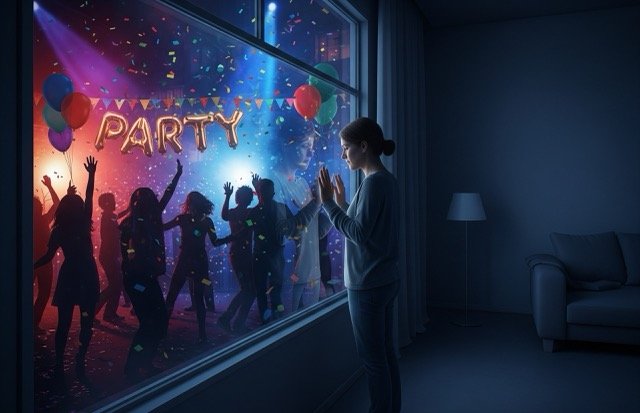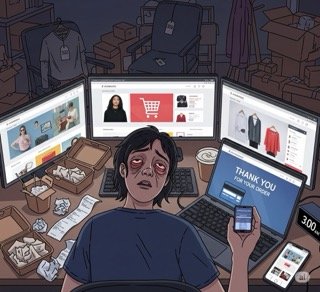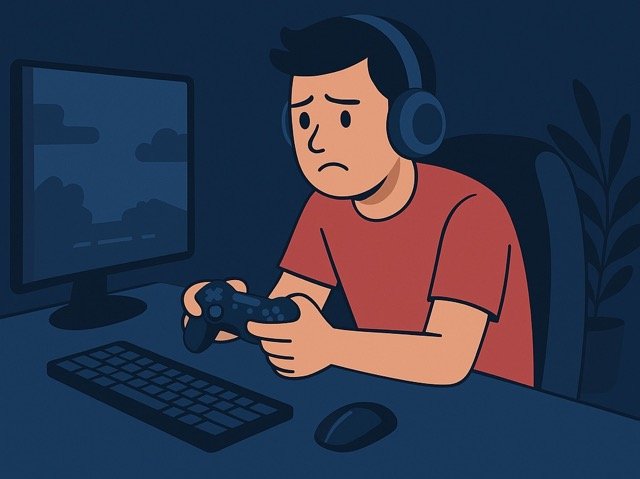
Is Online Shopping Addiction Taking Over Your Life?
February 19, 2026
Curiosity vs. FOMO: Are You Exploring or Just Scrolling?
February 19, 2026Ever feel like you’re missing out on something amazing every time you scroll through social media? That sinking feeling in your gut when you see your friends at a concert, on vacation, or celebrating without you? That, my friend, is FOMO—the Fear of Missing Out.
FOMO is more than just a trendy buzzword. It’s a real psychological phenomenon that affects how we think, feel, and behave. Let’s dive deep into this modern-day anxiety and explore how it’s impacting our lives—and what we can do about it.
Understanding the Concept of FOMO
Origins of the Term
The term FOMO was first coined in the early 2000s by marketing strategist Dr. Dan Herman. It gained serious traction with the rise of smartphones and social media platforms, where people started documenting their lives online for all to see.
FOMO in Modern Society
Nowadays, FOMO is practically baked into our daily routines. We’re constantly bombarded with highlight reels of others’ lives—glamorous vacations, dream jobs, perfect relationships. It creates a feeling that we’re always one step behind, or worse, left out entirely.
The Psychology Behind FOMO
Why Do We Experience FOMO?
FOMO isn’t just about envy—it’s rooted in our psychological wiring.
Social Comparison Theory
We humans are social creatures. According to social comparison theory, we evaluate ourselves based on how we stack up against others. When everyone else seems to be thriving, we can’t help but feel like we’re falling short.
Neurochemical Responses
Studies show that dopamine, the “feel-good” brain chemical, spikes when we anticipate a reward—like being part of a group event. When we’re excluded, it can cause real emotional discomfort, almost like physical pain.
FOMO and Mental Health
FOMO can lead to increased anxiety, low self-esteem, and even depression. The constant chase to “keep up” creates mental exhaustion and a never-ending cycle of dissatisfaction.
Common Signs You Might Have FOMO
Behavioral Indicators
- You compulsively check your phone for updates
- You attend events you don’t enjoy just to “be there”
- You overschedule your calendar with fear of missing anything
Emotional Symptoms
- Feeling left out or anxious when not included
- Experiencing regret after making choices
- Feeling envious of others’ experiences, even when you’re happy
FOMO in the Digital Age
Social Media’s Role
Let’s be honest—social media is a breeding ground for FOMO. We compare our behind-the-scenes with everyone else’s highlight reels. It’s easy to feel like everyone else is living their best life while we’re stuck watching from the sidelines.
The Influence of Influencers
Influencers market lifestyles that seem effortlessly glamorous. But most of it is curated, filtered, and polished. Still, it creates unrealistic expectations and a sense that we need to keep up with the digital Joneses.
FOMO Across Different Life Stages
Teens and Young Adults
This group is especially vulnerable. The pressure to fit in and keep up is intense. Fear of social exclusion often drives impulsive behavior and anxiety.
Working Professionals
FOMO hits hard in the workplace too. You might fear missing promotions, networking events, or even quitting your job to explore “better” opportunities that others seem to find.
Parents and Families
Parents may feel FOMO over parenting styles, missed milestones, or not giving their children the “best” experiences. It’s subtle, but the comparison trap is real.
FOMO and Consumer Behavior
Impulse Buying
Limited-time offers, flash sales, and “only 2 left!” messaging are designed to trigger FOMO. Many brands exploit it to boost conversions—and it works.
Event Overcommitment
Have you ever RSVP’d “yes” to five things in one weekend? That’s FOMO at play. You say yes to avoid missing out, even if it leaves you drained and overwhelmed.
FOMO and Addiction
FOMO doesn’t just cause a bit of stress—it can feed into addictive behaviors, especially in our hyper-connected digital lives.
The Vicious Cycle of Craving and Checking
You know that reflex to check your phone every few minutes? That’s not just habit—it’s reward-seeking behavior. FOMO creates a craving to stay constantly connected, leading to compulsive scrolling, social media checking, and notification anxiety. This constant loop can mimic behavioral addiction patterns, similar to gambling or even substance use.
Social Media as a Digital Drug
Platforms like Instagram, TikTok, and Facebook are designed to hook you with likes, stories, and viral content. Every ping triggers a dopamine hit—your brain’s reward chemical. Over time, this can lead to dependence, where not checking your phone makes you anxious or irritable. FOMO acts as the emotional fuel behind this cycle.
FOMO-Driven Addictions Beyond Screens
It’s not just tech. FOMO can also lead to:
- Event addiction – Saying yes to every invite to avoid missing out
- Shopping addiction – Buying things impulsively to stay “in trend”
- Workaholism – Overworking out of fear others are getting ahead
When FOMO Becomes a Real Problem
If you feel emotionally drained, distracted, or anxious due to the constant need to be connected or included, it may be time to assess whether FOMO is leading you toward addictive behavior. The key is awareness—once you spot the cycle, you can start breaking it.
How to Cope with FOMO
Mindfulness and Gratitude
Practicing mindfulness helps ground you in the present. Gratitude journaling is another powerful way to shift focus from what you lack to what you already have.
Digital Detox Techniques
Taking breaks from social media—whether for a few hours or a weekend—can reset your mindset. It’s a small act with a big impact.
Setting Personal Boundaries
Learn to say no. You don’t need to do everything or be everywhere. Define your limits and stick to them. It’s empowering, not limiting.
Turning FOMO into JOMO (Joy of Missing Out)
Reframing Perspective
Instead of thinking, “I’m missing out,” try reframing to, “I’m choosing what’s best for me.” That small shift can transform anxiety into empowerment.
Embracing Solitude
Solitude isn’t loneliness. It’s a chance to recharge, reflect, and reconnect with yourself. Sometimes, skipping the party is the best thing for your well-being.
Final Thoughts
FOMO is part of being human—but it doesn’t have to run your life. Understanding its roots and recognizing its symptoms is the first step toward reclaiming your mental peace. By shifting our perspective, setting boundaries, and embracing presence, we can turn fear into freedom and start living more intentionally.
FAQs About FOMO
Is FOMO a mental health condition?
Not exactly. While FOMO isn’t a clinical diagnosis, it’s closely linked with anxiety, depression, and low self-esteem. If it significantly disrupts your life, it’s worth seeking help.
Can FOMO be beneficial in any way?
Yes, in small doses. FOMO can motivate you to try new things or be more social—but it becomes harmful when it drives your decisions out of fear instead of desire.
What age group is most affected by FOMO?
Young adults and teens are the most affected, largely due to high social media usage. However, FOMO can impact people at any age.
How can I stop comparing myself to others online?
Limit screen time, unfollow triggering accounts, and focus on your personal goals. Practicing gratitude daily can also help combat comparison.
What’s the difference between FOMO and JOMO?
FOMO is the anxiety of missing out; JOMO is the joy of missing out—finding peace in doing your own thing without pressure or guilt.




